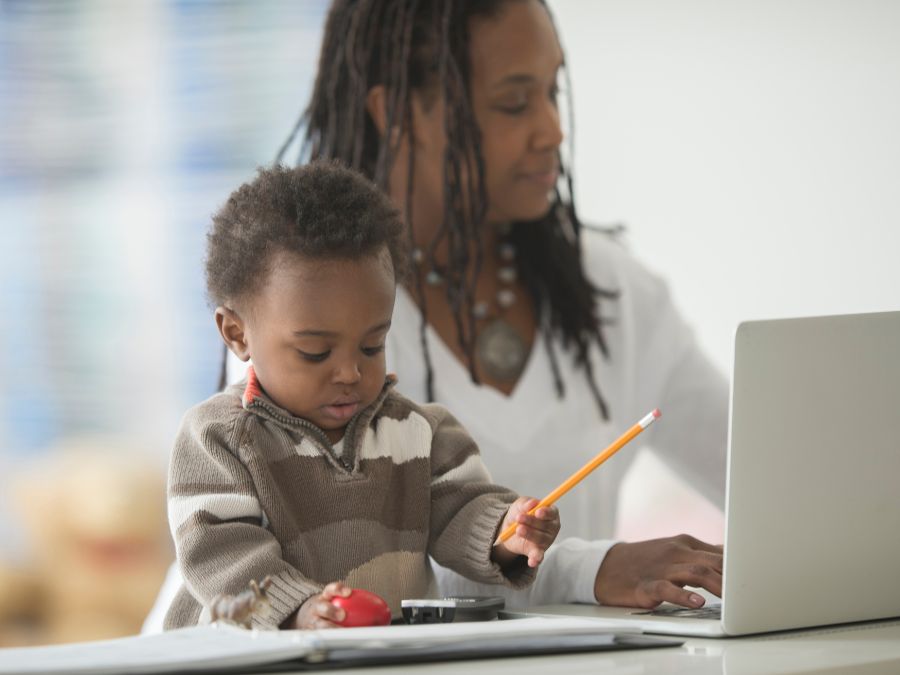
Understanding parental stress during COVID-19 helps guide disaster preparation planning
The beginning of the COVID-19 pandemic was a very stressful time for many of us. We were worried about getting sick, as well as spreading the disease to others, and were coping with the reality of living in lockdown. Parents in particular felt the weight of schools closing and childcare options becoming unavailable. Recently the HOPE team and Tufts University Graduate School of Biomedical Science Masters of Public Health student, Chuyun Xu, published a study in the Journal of Developmental and Behavioral Pediatrics. This study explores the effect of loss of childcare and other services for children and the stress parents experienced during the pandemic. 3000 parents of children younger than the age of 18 were sent a survey to complete in two waves, one in November 2020, and again in February 2021.
Comparison of stress levels and childcare disruptions
In the survey, the research team specifically focused on the question, “How often, if ever, have you felt nervous or stressed since the Coronavirus (COVID-19) outbreak occurred (i.e., since early March 2020)?” They compared this response to the number of disruptions* in their children’s lives including school closure, childcare closure, inability to receive free or reduced cost meals at school, and inability to go outside to play or exercise. The study team looked at differences in stress levels across the parents’ sex, education, marital status, and family income. They also explored the impact that parental experiences of adversity had on their stress level.
More disruptions, more parental stress
The team found that the more disruptions in services for children a family experienced, the more stress parents felt in the home. For every increase in the number of COVID disruptions in children’s lives, the odds of feeling stressed increased by 20%. Additionally, women were more likely to feel stressed than men, and education, marital status, and family income were all associated with levels of stress reported by parents. Parents who reported exposure to adverse childhood experiences (ACEs) we more likely to report pandemic-related stress.
Considerations to improve disaster planning
“Our findings illustrate the link between disruptions in childcare and other services for children and levels of parental stress and highlight the importance of including considerations for childcare and other parental supports in disaster planning and preparation.” – Dina Burstein, MD, MPH, FAAP
From this study we have learned that preparing for these widespread disruptions to childcare services should be taken into account when disaster planning. Plans should include resources for alternative childcare, support and supplies needed for children to successfully attend school remotely, and equitable access to quality mental health services. This study also exposed the importance of needed support for vulnerable populations, the importance of financial support for families, and continuing work to prevent ACEs.
*Disruptions: school closure, inability to receive individualized education program services, child or daycare closure, sports or other after-school activities cancellation, summer camp or summer programs cancellation, playdate cancellation, inability to receive free or reduced cost meals at school, medical or dental appointment cancellation, vaccinations postponement, and inability to go outside to play or exercise.


